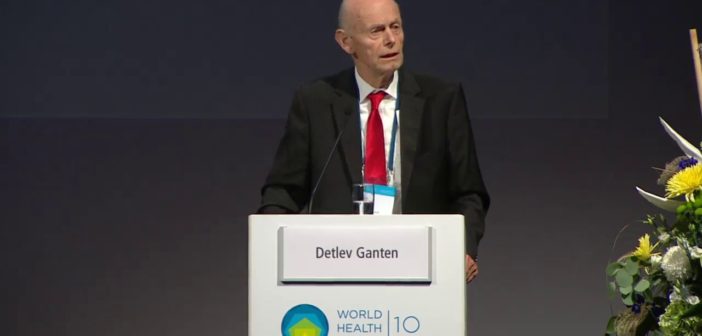Sunday, April 7 is World Health Day. This year’s theme highlights the most basic aspect of healthcare: whether people can access it. At least half the world’s population can’t get essential health services they need. The World Health Organization describes universal health coverage as its number-one goal, and UN Member States have agreed to try to achieve it by 2030—an ambitious timeline.
Prof. Detlev Ganten, President of the World Health Summit, an annual event that takes place in Germany explains what we can do to make accessible health coverage a reality for everyone in the world.
Why is universal health coverage important?
Universal health coverage means that everyone, everywhere can get the health services they need without financial hardship. People shouldn’t need to risk poverty or their family’s future to access primary healthcare. There are parts of the world where people don’t know where to go when they get sick. There may not be a hospital nearby, or they may not be allowed to see a doctor if they can’t afford treatment. The goal of universal health coverage is for everyone in the world to have affordable, effective health services they can access in their communities.
Currently millions of people have no or inadequate access to healthcare. What needs to happen to change that?
Politicians everywhere have to recognize that health is a political problem and a human right. It belongs at the top of the policy agenda—that’s what their constituents want. Health isn’t just a human right, it’s the most important resource we have as individuals and as a society.
UN countries have agreed to attempt universal health coverage by 2030. Is that a realistic goal?
It’s an ambitious goal—that’s just over ten years—but I think it’s possible. The most important thing to reach this goal is that the desire comes from within the countries themselves. We have to motivate governments to build the necessary foundations. Even if health services don’t reach every person right away, it’s important that the structures are there. They have to function well enough that when a health crisis hits, there’s a way of dealing with it and making the most of outside help.
Are there examples of countries doing particularly well?
Yes, Rwanda has already managed to provide over 90 percent of its population with health coverage. After the genocide, the country put its health system high on the reconstruction agenda. Since then, they’ve been continually expanding and improving it. What Rwanda has achieved so far is impressive and shows what can happen if politicians take health seriously.
Many countries need to make more progress, including wealthy countries like the United States. Fortunately, universal health coverage has become a topic in the public discourse that US politicians can’t avoid. That’s an important first step, but just the first of many.
Prof. Detlev Ganten is President of the World Health Summit, which he founded in 2009 with the goal of improving global health. A medical doctor specializing in pharmacology and molecular medicine, he is one of the world’s leading scientists in the field of cardiovascular disease. He was previously President of the Helmholtz Association of National Research Centers, a member of the National Ethics Council, and CEO of Charité, one of the largest university hospitals in Europe.
The World Health Summit is the world’s leading strategic forum for global health. It brings together international leaders from politics, science, the private sector, and civil society to address challenges around the world. The next World Health Summit will take place October 27-29, 2019. 300 speakers and 2,500 participants from 100 countries will tackle topics including universal health coverage, digital health, and climate change.




